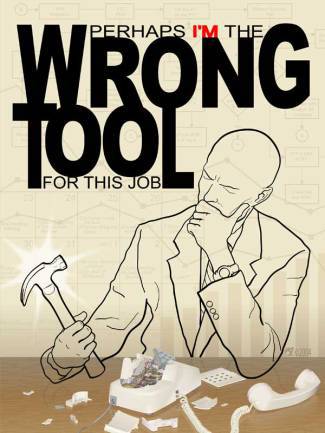The ‘deductivist blindness’ of modern economics Scientific progress … is frequently the result of observation that something does work, which runs far ahead of any understanding of why it works. Not within the economics profession. There, deductive reasoning based on logical inference from a specific set of a priori deductions is “exactly the right way to do things”. What is absurd is not the use of the deductive method but the claim to exclusivity made for it. This debate is not simply about mathematics versus poetry. Deductive reasoning necessarily draws on mathematics and formal logic: inductive reasoning, based on experience and above all careful observation, will often make use of statistics and mathematics … The belief that models are not just useful tools but are capable of yielding comprehensive and universal descriptions of the world blinded proponents to realities that had been staring them in the face. That blindness made a big contribution to our present crisis, and conditions our confused responses to it. John Kay The ‘deductivist blindness’ of mainstream economics explains to a larger extent why it contributes to causing economic crises rather than to solving them. But where does this ‘deductivist blindness’ of mainstream economics come from? To answer that question we have to examine the methodology of mainstream economics.
Topics:
Lars Pålsson Syll considers the following as important: Economics
This could be interesting, too:
Lars Pålsson Syll writes Schuldenbremse bye bye
Lars Pålsson Syll writes What’s wrong with economics — a primer
Lars Pålsson Syll writes Krigskeynesianismens återkomst
Lars Pålsson Syll writes Finding Eigenvalues and Eigenvectors (student stuff)
The ‘deductivist blindness’ of modern economics
Scientific progress … is frequently the result of observation that something does work, which runs far ahead of any understanding of why it works.
Not within the economics profession. There, deductive reasoning based on logical inference from a specific set of a priori deductions is “exactly the right way to do things”. What is absurd is not the use of the deductive method but the claim to exclusivity made for it. This debate is not simply about mathematics versus poetry. Deductive reasoning necessarily draws on mathematics and formal logic: inductive reasoning, based on experience and above all careful observation, will often make use of statistics and mathematics …
The belief that models are not just useful tools but are capable of yielding comprehensive and universal descriptions of the world blinded proponents to realities that had been staring them in the face. That blindness made a big contribution to our present crisis, and conditions our confused responses to it.
The ‘deductivist blindness’ of mainstream economics explains to a larger extent why it contributes to causing economic crises rather than to solving them. But where does this ‘deductivist blindness’ of mainstream economics come from? To answer that question we have to examine the methodology of mainstream economics.
The insistence on constructing models showing the certainty of logical entailment has been central in the development of mainstream economics. Insisting on formalistic (mathematical) modeling has more or less forced the economist to give upon on realism and substitute axiomatics for real world relevance. The price paid for the illusory rigour and precision has been monumentally high
 This deductivist orientation is the main reason behind the difficulty that mainstream economics has in terms of understanding, explaining and predicting what takes place in our societies. But it has also given mainstream economics much of its discursive power – at least as long as no one starts asking tough questions on the veracity of – and justification for – the assumptions on which the deductivist foundation is erected. Asking these questions is an important ingredient in a sustained critical effort at showing how nonsensical is the embellishing of a smorgasbord of models founded on wanting (often hidden) methodological foundations.
This deductivist orientation is the main reason behind the difficulty that mainstream economics has in terms of understanding, explaining and predicting what takes place in our societies. But it has also given mainstream economics much of its discursive power – at least as long as no one starts asking tough questions on the veracity of – and justification for – the assumptions on which the deductivist foundation is erected. Asking these questions is an important ingredient in a sustained critical effort at showing how nonsensical is the embellishing of a smorgasbord of models founded on wanting (often hidden) methodological foundations.
The mathematical-deductivist straitjacket used in mainstream economics presupposes atomistic closed-systems – i.e., something that we find very little of in the real world, a world significantly at odds with an (implicitly) assumed logic world where deductive entailment rules the roost. Ultimately then, the failings of modern mainstream economics has its root in a deficient ontology. The kind of formal-analytical and axiomatic-deductive mathematical modeling that makes up the core of mainstream economics is hard to make compatible with a real-world ontology. It is also the reason why so many critics find mainstream economic analysis patently and utterly unrealistic and irrelevant.
Although there has been a clearly discernible increase and focus on ’empirical’ economics in recent decades, the results in these research fields have not fundamentally challenged the main deductivist direction of mainstream economics. They are still mainly framed and interpreted within the core axiomatic assumptions of individualism, instrumentalism and equilibrium that make up even the ‘new’ mainstream economics. Although, perhaps, a sign of an increasing – but highly path-dependent – theoretical pluralism, mainstream economics is still, from a methodological point of view, mainly a deductive project erected on a foundation of empty formalism.
